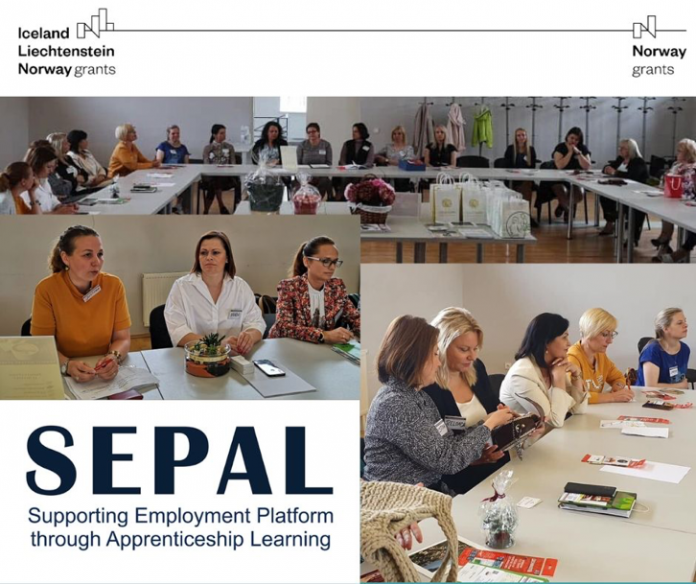3rd SEPAL dissemination event in Lithuania
On 16th of June, a group of business representatives had been invited to a round table discussion about the pros and cons of employing young people, vocational training deficiencies and the opportunities of the project SEPAL. Our WISE expert – job mediator, Justina Dranginytė – Stočkė presented the success stories and early results of the project, the meaning of the partnerships and social responsibility for the business. The discussion on the youth employment took place, the representatives discussed the different employee and employer’s perspectives, beliefs about a young employee as being unmotivated, incapable of remaining at one place for a long time, not being worth the investment. Participants discussed the gaps of the education, actual reasons why the conflicts at workplace occur. Moreover, participants debated why social responsibility is so unpopular among the businesses, why there are not so many social firms in Lithuania, even less those which focus on the employment of other disadvantaged groups but disabled.
The quarantine had passed and it showed mistakes done by business as well. As our participants admitted, the pandemic affected the most those who were less flexible, who couldn’t re-arrange the work fast enough and those whose employees were not prepared for working in shifts or from the distance. Moreover, they acknowledged that there were more difficulties with those employees who need additional support at workplace (new employees, less motivated, less experienced). Participants said that on the job support for all their new employees would have been helpful for them to remain effective or, sometimes, remain employed.
This discussion has raised awareness among business sector about the social responsibility. Successful experiences in employing the young employees ensured the participants that it is worth the investment. All the participants concluded that policy is to be changed for more social firms to be established. Few companies become interested in employing some of the project participants. Our job mediator – Justina Dranginyte – Stocke questioned the most common myths and stereotypes related to youth employment, she invited representatives to participate in the project and build the competences of the employee at the workplace via apprenticeship and on-the-job training. As the vast majority of the participants were women, being in a societal group with less opportunities than men, they shared the idea of support for other vulnerable groups.


